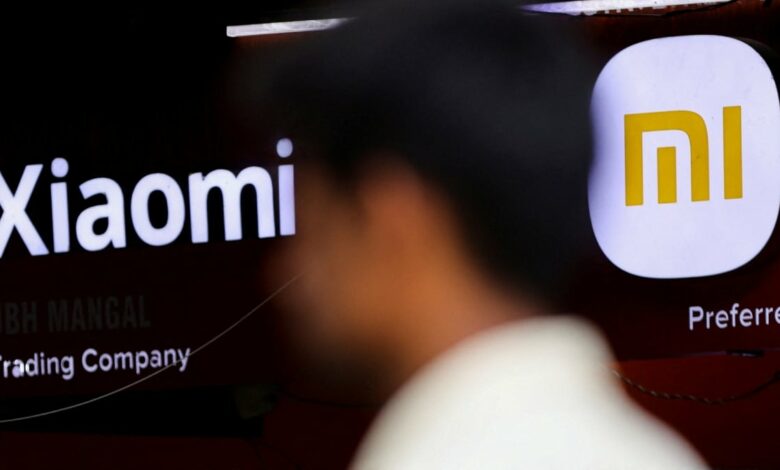Xiaomi says Center’s investigation into Chinese companies is making smartphone vendors nervous

China’s Xiaomi has said in New Delhi that suppliers of smartphone components are reluctant to open branches in India due to the government’s strict controls on Chinese companies, according to a letter and a source with direct knowledge of the matter.
Xiaomi, which has the largest share of India’s smartphone market with 18 percent, also asked India in the letter dated February 6 to provide production benefits and reduce import tariffs on certain smartphone components.
The Chinese company assembles smartphones in India using mostly local components, with the rest imported from China and elsewhere. The letter is Xiaomi’s response to a query from India’s information technology ministry on how New Delhi can further develop the country’s component manufacturing sector.
India tightened controls on Chinese companies after at least 20 Indian soldiers and four Chinese soldiers were killed in a 2020 border clash between the two countries, disrupting investment plans by major Chinese companies and prompting repeated protests from Beijing.
While Chinese companies operating in India have been reluctant to talk publicly about the investigation, Xiaomi’s letter shows that it continues to struggle in India, especially in smartphones, where many key components are sourced from Chinese suppliers.
In the letter, Xiaomi India President Muralikrishnan B. wrote that India should take measures to “build trust” and encourage component suppliers to set up operations locally.
“There are concerns among component suppliers about setting up operations in India because of the challenges faced by companies in India, particularly companies from China,” Muralikrishnan said, without naming any companies.
The letter said the concerns were related to compliance and visa issues which were not elaborated upon, and other factors. It said: “The government should address these concerns and work towards building confidence among foreign component suppliers by encouraging them to set up manufacturing facilities in India.”
Xiaomi and the IT Ministry did not respond to requests for further information or comment.
Last year, Indian authorities accused Chinese smartphone company Vivo Communication Technology of violating certain visa rules, alleging that the company had siphoned off $13 billion (approximately Rs 1,07,895 crore) worth of money from India.
India has also frozen over $600 million (approximately Rs 4,979 crore) worth of Xiaomi funds over alleged illegal transfers to foreign entities, allegedly presented as royalty payments.
Both Chinese companies deny any wrongdoing.
In addition to regulators’ scrutiny of companies like Xiaomi and Vivo, India has also banned more than 300 Chinese apps since 2020, including ByteDance’s TikTok, and halted planned projects like those from Chinese automakers BYD and Great Wall Motor.
The source said many executives of Chinese electronics companies are struggling to get visas to India and their companies continue to face slow approvals for investments due to tight controls by New Delhi.
In the letter, Xiaomi’s Muralikrishnan also advocated for a further reduction in Indian import tariffs, coming soon after New Delhi decided on January 31 to slash import duties on phone battery covers and camera lenses.
Xiaomi also asks India to reduce import tariffs on sub-components used in batteries, USB cables and phone cases, the letter said.
Reducing import tariffs could “increase the competitiveness of the Indian manufacturing sector … in terms of costs,” Xiaomi said in the letter. But to entice component makers to set up shop in India, bigger incentives are needed.
In January, Rajesh Kumar Singh, India’s top policy officer on industry, indicated that India could ease tighter controls on Chinese investments if the border between the two countries remains peaceful.
© Thomson Reuters 2024




